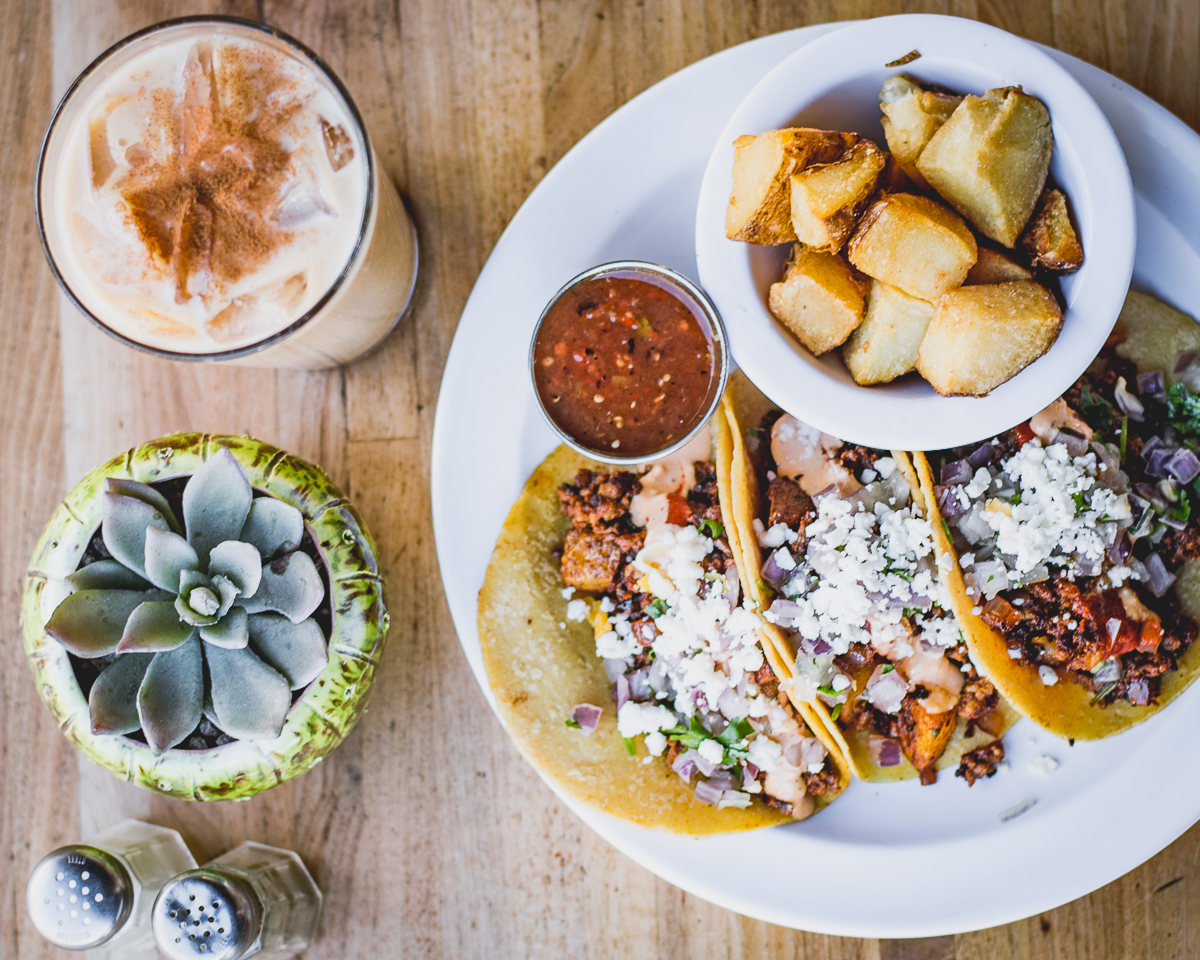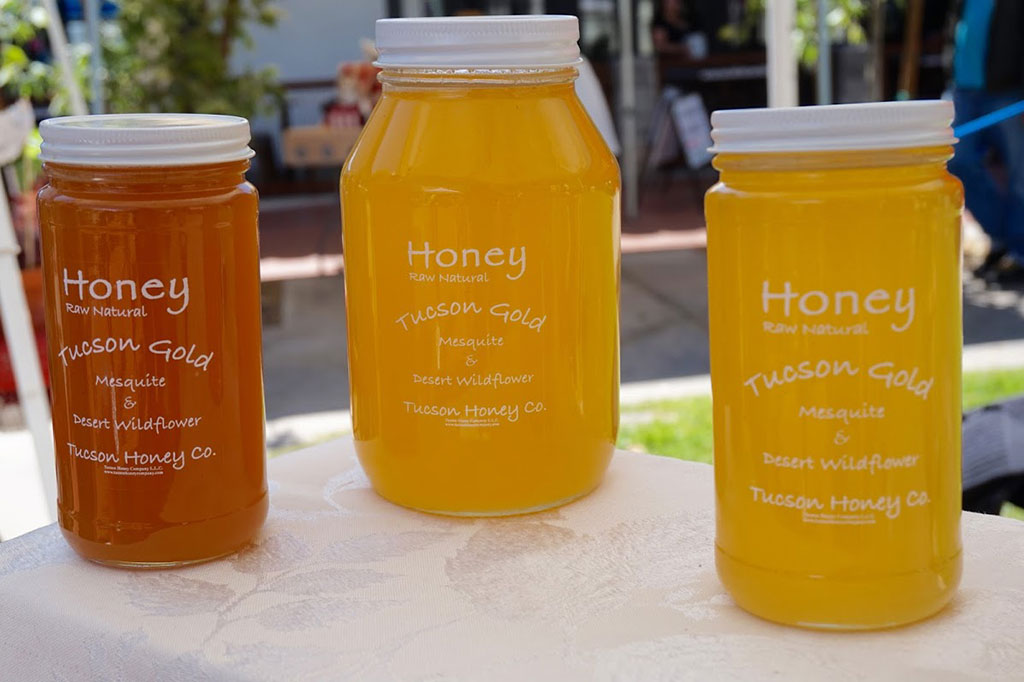
Honey is a pantry staple, but most of us don’t think about where it originated.
David Benton of Tucson Honey Company provides 100% raw and natural honey that is the product of his local beehives. His start was the result of a personal need and the business grew organically from that need from there.
Benton’s own citrus trees were left without a form of pollination as a result of bee colony collapse disorder. This proved to be the motivation he needed to act on a dream.
“It was something I always wanted to do and this pushed me over the edge to just do it,” said Benton.
Creating a niche for himself by working with small growers in town, Benton places beehives in local farms. This way, crops get pollinated and honey is created. For certain crops, like squash, there isn’t a native pollinator so Benton’s honeybees come in and provide this much needed act.
“The bees live in the hives year round,” he says. “I tend to them throughout the year. As a beekeeper, I’m a farmer. The bees are legally considered livestock.”
Tucson Honey Company beehives can be found all over the city in backyards, gardens and out in the desert.
Benton also specializes in bee removal. When going to a site with a hive, he humanely removes the bees and places them in a beehive to produce honey.
“Honey is harvested about two to three times a year. It begins in late May continuing through early June and then starts again in September continuing through October. The timing of the harvest depends primarily on the rain fall.”
Benton recommends everyone buy honey from a local beekeeper. The biggest benefit to consuming local honey is to treat allergies. He estimates over 60 percent of his sales are from customers seeking relief from itchy eyes, running noses and constant sneezing. He recommends a teaspoon a day of raw and local honey. The raw honey comes directly from the hive and is not pasteurized.
“Because you are ingesting local pollen, you’re inoculating yourself, says Benton. “The way to tell if honey has been pasteurized is to see if it is liquid and if you are able to see through it.”

In addition to his work as a beekeeper and beehive remover, Benton also works the farmers markets. After five years, he has created a community with his regular customers. He works with two other young men, Greyson and Westin Sims. Originally just family friends, these two brothers now play an active role in the business as partial owners.
Benton’s passion for his craft is clear. He speaks from his heart and wants people to know the importance of supporting local beekeepers.
“The only way to truly know what you are buying is to buy honey from a beekeeper. Look for someone who has a background in it. That way you will know what you are truly getting.”
You can find Tucson Honey Company at Santa Cruz River Farmers Market on Thursdays and select FoodInRoot markets, including Sycamore Park, the UA Mall, Sahaurita, and St. Philip’s Plaza on Sundays.
Keep up with Tucson Honey Company on Facebook.